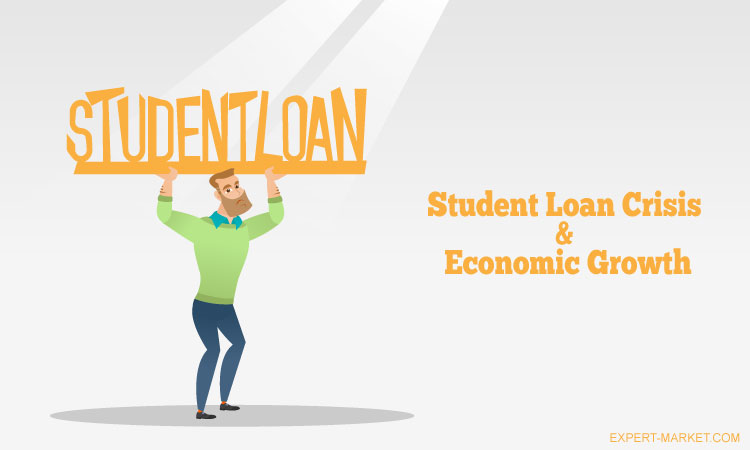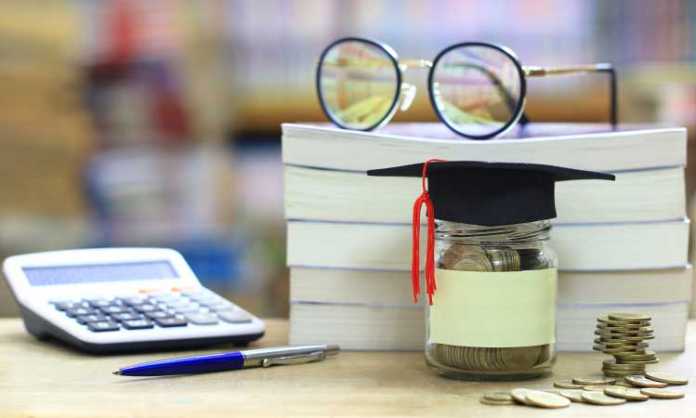Do you recall the 2008 financial crisis? Since the great depression, according to some economists, the 2008 financial crisis is the worst. It started because of the issues or problems in the loan arrangements in the mortgage sector. These high-risk credits resulted in a massive number of new home buyers, urging the increase of house prices, causing people to borrow money against their homes.
This crisis led to the defeat of the stock market and several financial institutions, and there was a high rate of unemployment, and people lost their homes. According to experts, the next potential crisis to rupture could be the student loan debt difficulties the country is, at the present time, facing.
Because of the increasing education costs, lots of American citizens are, for the most part, suffering into debt. What does this potential financial windfall mean for the future, and how will it affect the economic growth of the country? Take a read to know more.

The Problem With Student Loan Debt Issues
Students leave their greatly revered and honored universities of learning with more than a college degree to prove for it. Generally speaking, students who recently graduated from college are, for the most part, on the verge for over thirty thousand and about ten years to repay it all back.
The monthly payments are about four hundred dollars a month, which is not a teensy-weensy amount for fresh graduates. The problem of a hefty, extra bill every month does not just set burden on the bank account of an individual, it has significant consequences for the economy, as a whole, as well.
It’s specifically true because a lot of American citizens vie to make payments. Young adults are, believe it or not, spending a smaller amount on discretionary portfolios every year. The usual spending by eighteen to thirty-four-year-olds since 2008 is down by nineteen dollars.
And when they reach the age of thirty, young adults tend to start or build their own business. Forty-two percent are saying that they don’t have enough money to enter entrepreneurship. It takes at least twelve years for a recent college graduate to save enough money to pay for a home’s down payment.
About eighty percent of people aged twenty-two to thirty-five have not yet bought a home because of their student loan debt. Moreover, over forty-seven percent of Americans are buying a car. On the other hand, one out of seven American couples is, unfortunately, holding back to get married because of financial issues.
How Could You Manage this Potential Crisis
For those people struggling and living with a student loan debt, take note that there are many other ways to repay these loans faster and easier. For example, income-based repayment, instead of fixed compensation founded on debt amount plus the combination of a few financial accounts signifies lower monthly payments, lower interest rates, and keeping away from deferring loans.
Discount rates are, believe it or not, highest among recent graduates and young adults, with over twenty-six percent of millennials and seventy-seven percent of generation Z picking deferment.
Moreover, American college graduates are provided one-third of the entire time to repay their debt than other countries. Stretching the time in which to pay back loans helps temporarily b reducing monthly payments. Also, it gives millennials more choices for stimulating the economy and saving money.
Congress took steps in 2013 that lowered the entire interest rates for student loans. However, these moves weren’t quickly available to people who had acquired loans before the change.
Still, some economists agree that it’ll take radical and more aggressive changes to establish lasting progress. It calls for an immense change in educational standards and loan policies.
The complete annulling of the loans is only available to a few careers and is sometimes rare. Public school teachers and nurses have the choice to cancel their debts after some time. But annulling all student loan debt could alter and revamp the game entirely.
Loan forgiveness would motivate people to spend more money on economic services and goods, instead of paying back on interest and debt, to fuel the economy. Moreover, it could expand taxes for everyone.
How Could Less Student Loan Debt Influence the Economy?
According to some experts, free public college is the most effective solution to this bubble. It already exists in Germany and Denmark and serves as a working, living, experiment. It was approximated to cost forty-seven billion dollars, from the proposed 2017 College for All Act by Senator Bernie Sander, annually to manage free states and college.
Without student loan debt, the gross domestic product would increase up to 108 billion dollars a year over time. The canceled loans would sum up to 1.5 million regular employment into the economy. Furthermore, free tuition would reduce the financial problem of getting a college degree, affecting the economy at large.
Takeaway
If you are struggling in a student loan debt today, certified loan counselors, for example, Credit Ninja, can help you analyze your financial situation and make sure your payments remain inexpensive. Also, they will help you lessen the impact of your debt in the long run.



























